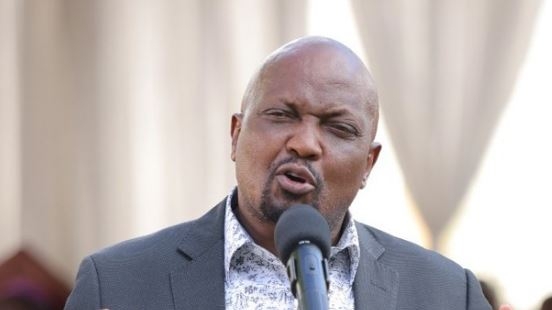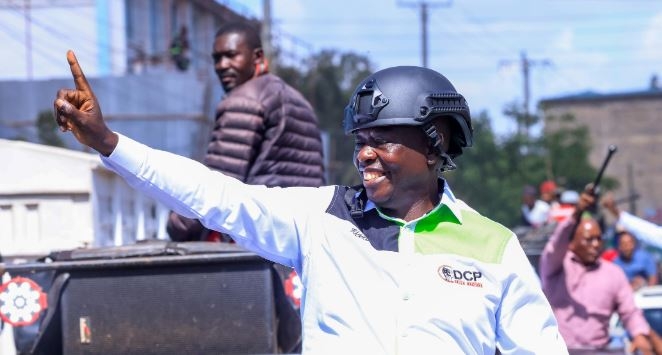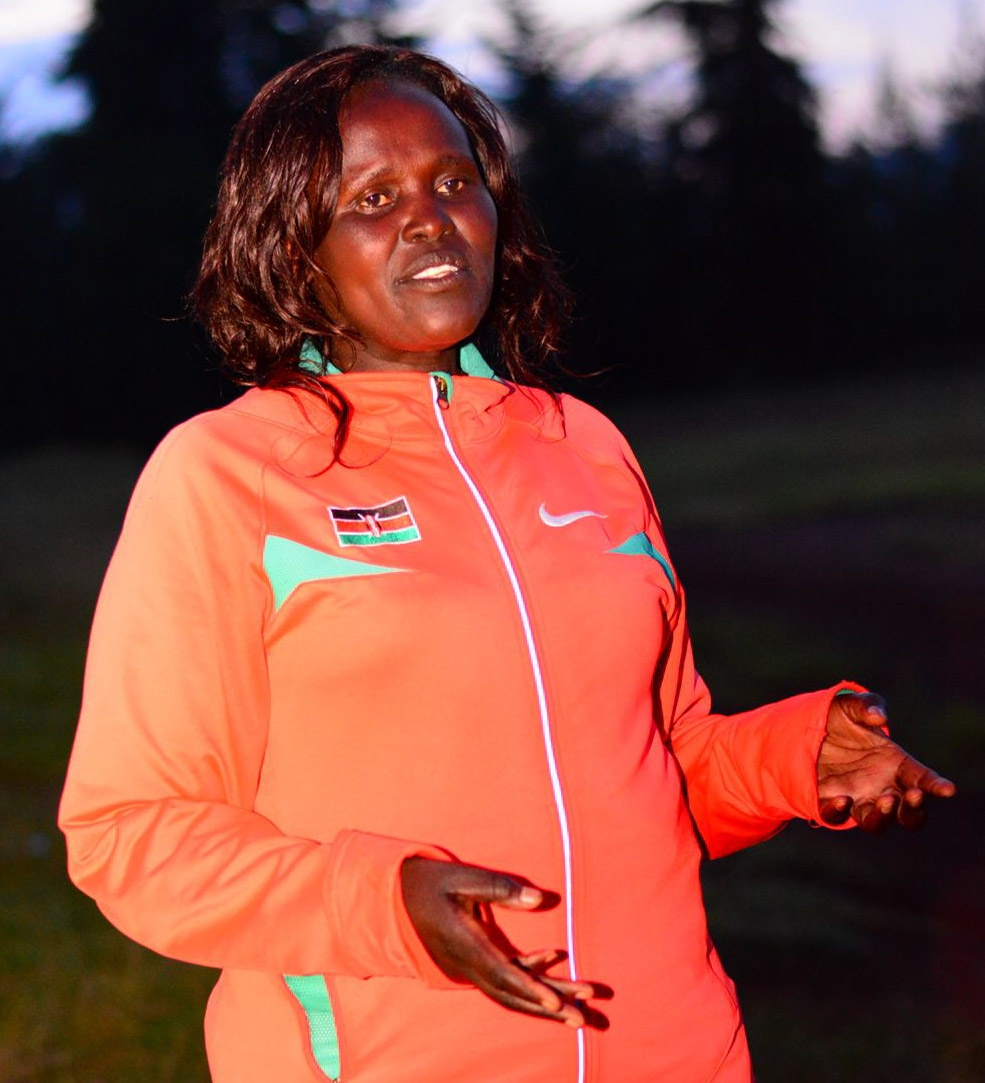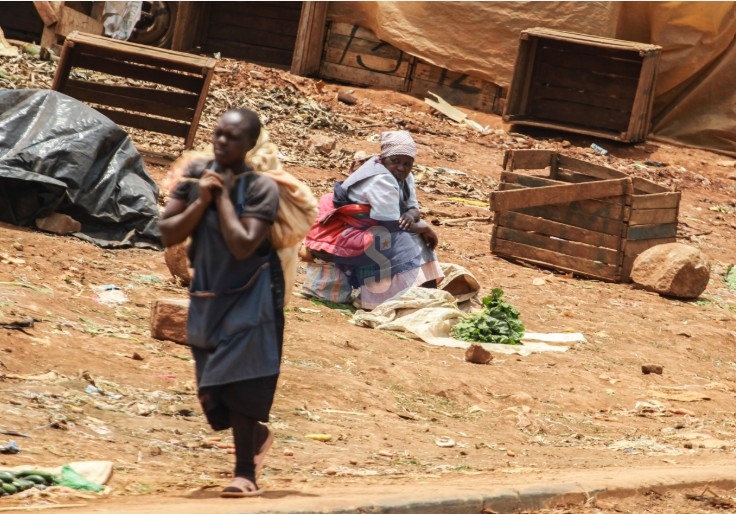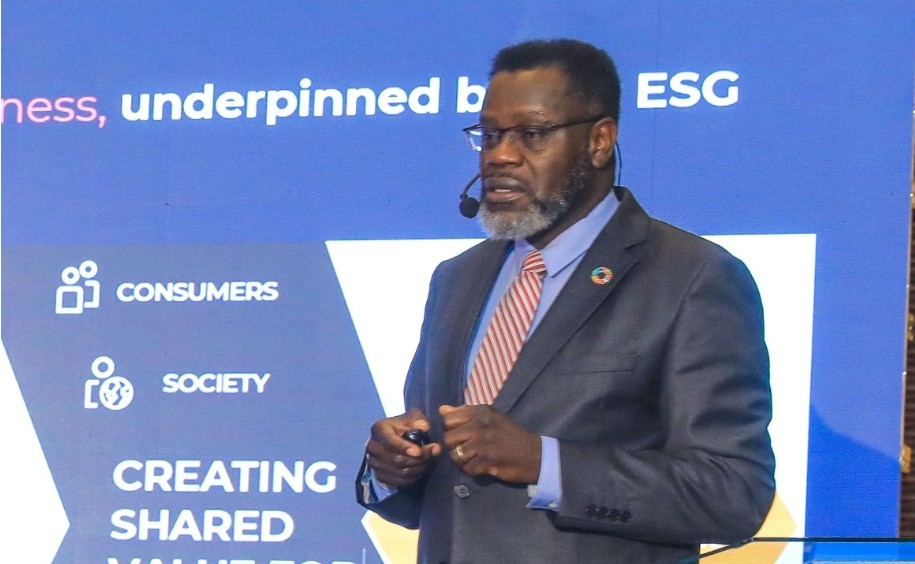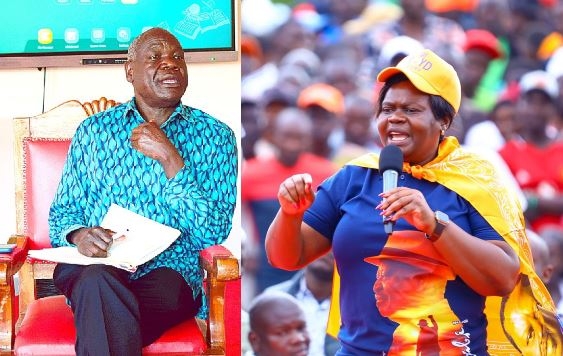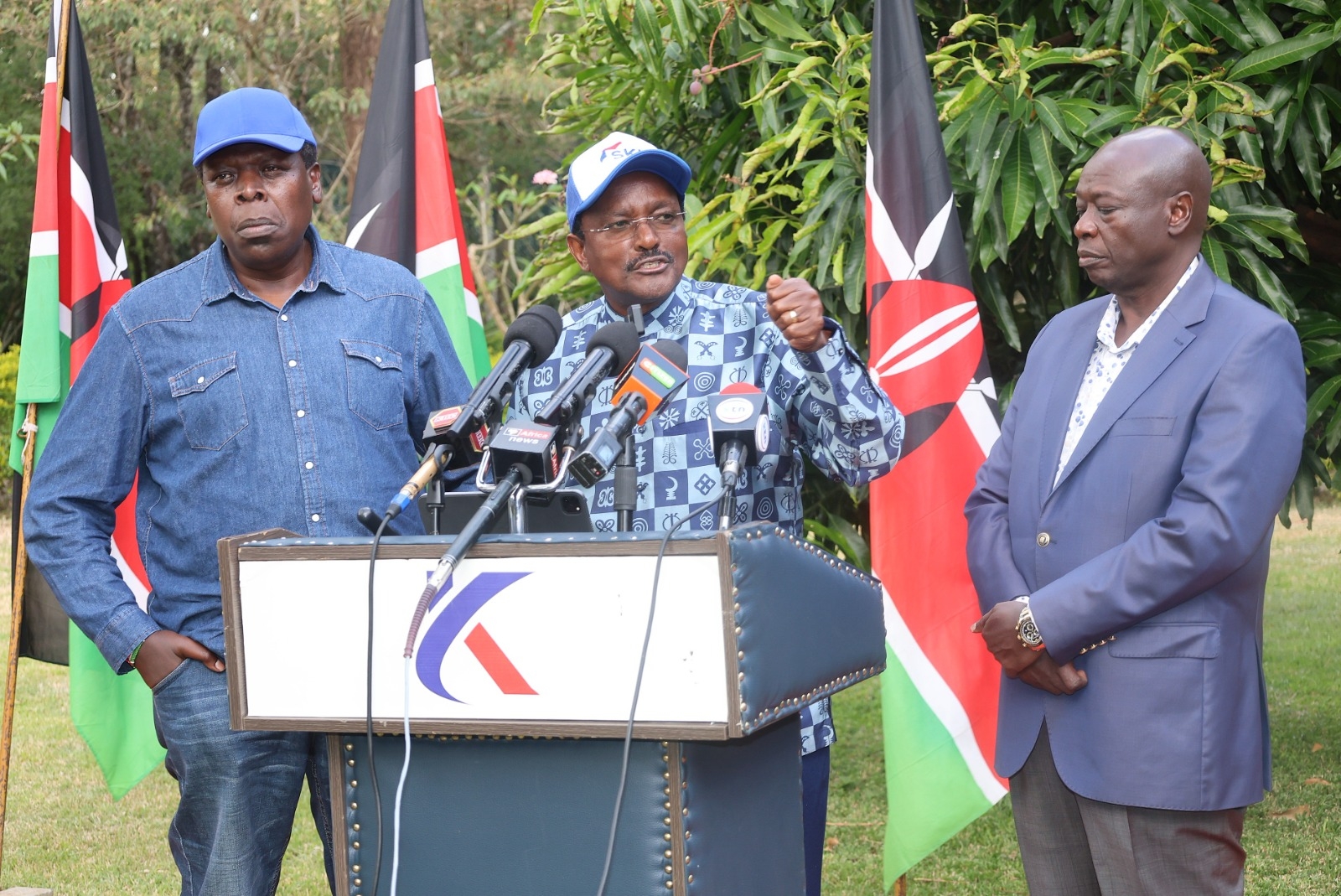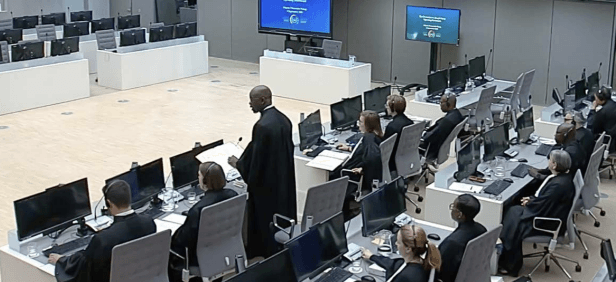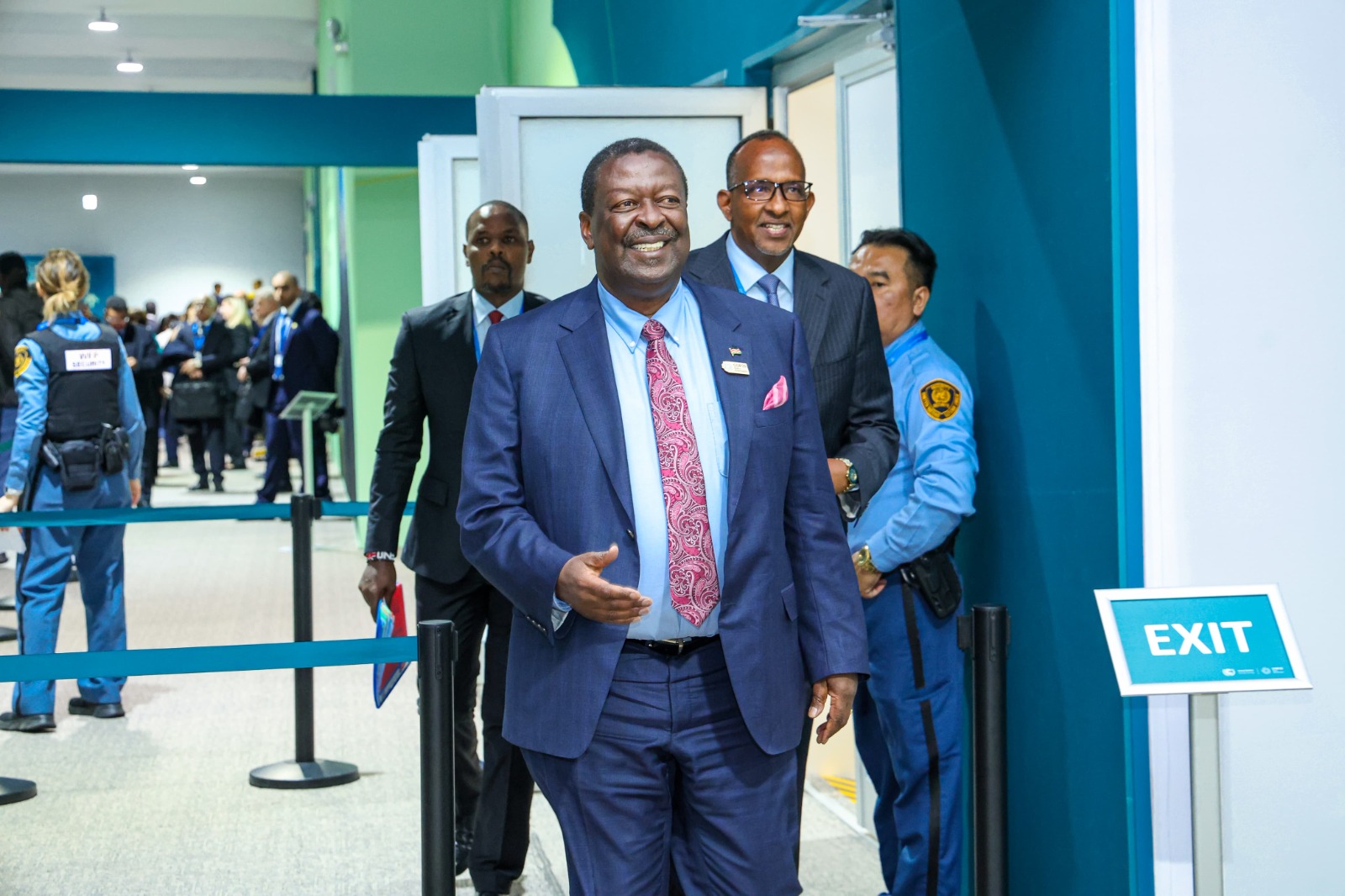
The Kenyan government has called for an uninterrupted and reliable flow of resources to address the impacts of climate change.
Prime Cabinet Secretary Musalia Mudavadi said there is a need for more resources to flow to the African continent to address the impacts of climate change.
“The flow of resources is very important and we hope that out of this COP, we will perhaps, at the next session, be able to see out of the commitments that were made, let us see what were the actual disbursements to support climate-related action in all these countries, and even have a tabulation where we can see that out of those commitments, so much went to Africa,” Mudavadi told the press shortly after the high-level meeting.
The climate forum started on Monday in the chilly town of Baku, Azerbaijan.
World leaders and negotiators are in Baku, Azerbaijan, for the United Nations Climate Change Conference, known as the 29th Conference of Parties (COP29).
Mudavadi was accompanied by Environment CS Aden Duale, Environment PS Festus Ng’eno, and Special Advisor of the President on Climate Change Ali Mohamed.
Mudavadi reiterated the need to restructure financial architecture, saying developing countries have a challenge balancing development and addressing the impacts of climate change.
“We already dealing with a lot of public debt through expensive funding. So if you can re-engineer and then have it concessional and when I say concessional, that means borrowing at even one per cent or less, and having a longer period of repayment, maybe even 30 to 40 years, so that countries can actually push the Climate Action Agenda without devastating the overall fabric in their countries. So this is going to be very, very important,” Mudavadi said.
Mudavadi said each of the countries is unique and that there are countries that are hit more by drought, while others are hit by floods.
He said other countries are island states, and their threat is more about the rising sea.
“So, it is important for each country, and Kenya, for instance, to focus on programs, whether bilateral or multilateral, that are properly tailored to deal with the Kenyan challenge,” Mudavadi said.
He stated that he looks forward to ‘engaging positively’ with Donald Trump’s administration adding that the partnership with USA started in 1964.
There are fears that the new administration might water down some of the past efforts made to address the impacts of climate change.
Duale said the state has put in place policies and regulations especially those touching on carbon credits.
He said communities are set to benefit.
“It's in that regulation, it's in law that 40 per cent of any carbon projects will be done in any place in our country. 40 per cent will go to the local community in terms of education, healthcare, making sure what is available,” Duale said.
The over 200 states at the talks must agree on a new goal on how resources will be availed for developing countries to address the impacts of climate change, with previous efforts of availing such resources have failed.
“It is better to leave Baku with no deal than a bad one. All parties are encouraged to come up with a good deal,” Climate Policy and energy expert Joab Okanda said.
Delegates in attendance now have to devise ways to avail resources under a new framework known as New Collective Quantified Goal on Climate Finance (NCQG).
NCQG is a new global climate finance goal that the Conference of the Parties serving as the meeting of the Parties to the Paris Agreement will set from a floor of $100 billion per year, prior to 2025.
Rich countries had pledged the amount per year to developing countries by 2020. No resources were however availed.
During the opening ceremony on Monday, UN Climate Change Executive Secretary Simon Stiell called for global cooperation in order to address the impacts of climate change.
“This UNFCCC process is the only place we have to address the rampant climate crisis, and to credibly hold each other to account to act on it,” Stiell said.
The new finance goal will be set in the context of meaningful mitigation actions and transparency on implementation, taking into account the needs and priorities of developing countries.
Deliberations on setting the new goal aim to strengthen the global response to the threat of climate change in the context of sustainable development and efforts to eradicate poverty, including by making finance flows consistent with a pathway towards low greenhouse gas emissions and climate-resilient development.
Developing nations also want loss and damage as a result of climate change to be included in UN negotiations.
Interestingly, rich and wealthy nations say the matter should be separated from the talks and should not feature in the new climate finance goal.




